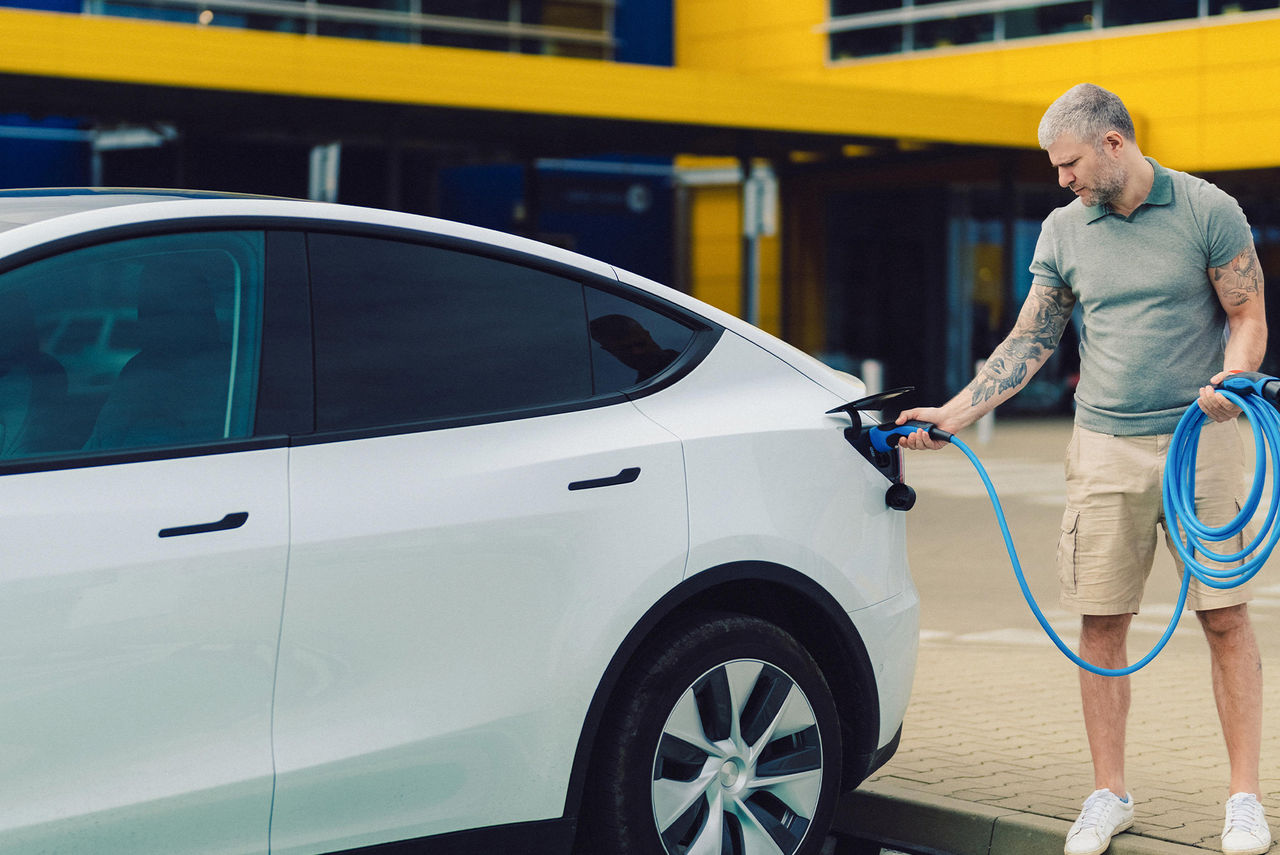
The Future of Electric Cars
There's no two ways about it: humanity needs to move towards a lower emission, more renewable future. Electric vehicles (EVs) are key to this transition. By replacing fossil fuel-burning internal combustion engines, we can dramatically reduce the amount of greenhouse gas emissions from our road transport fleet. The transition to electric vehicles has already begun, but how will it play out over the next few years and decades?
When you have an idea of what the future will hold, you can better prepare for it. So, let's explore the future of electric vehicles, to see what tomorrow might bring.
Technological advancements
The technological evolution of EVs has been nothing short of stunning. Take EV batteries, for example: over the last 30 years, the price of lithium-ion batteries has dropped by 99% - i.e. a $100 battery then costs $1 now. What's more, the energy density of batteries has increased by 500% over the same period.
The good news? This trend shows no sign of slowing, particularly given the incredible potential of solid-state EV battery technology, which may be even cheaper, safer and more energy-dense than lithium-ion.
Impact on the environment
The lifecycle emissions for an EV, including car production, battery production, driving and scrapping or recycling, are three times lower than for petrol cars. So, if you ever hear someone say "EVs are just as bad for the environment as petrol cars", you can now confidently correct them.
With around two-thirds of New Zealand's transport emissions coming from light vehicles, EVs are set to play a huge role in the decarbonisation of our economy, to meet our goal of net zero emissions by 2050.
There are more localised, tangible environmental benefits too, like cleaner air and quieter streets.
Infrastructure development
One of the key benefits of EVs is that you can 'refuel' them at home, but longer trips still rely on public charging infrastructure. This is developing quickly in New Zealand, with 1200 fast EV charge stations already established by mid-2024, and an aim to build 10,000 public EV chargers by 2030.
A key part of this effort will be ensuring that the energy sources that power our EVs are renewable, but luckily over 80% of our electricity is already renewable (New Zealand has the third-highest level in the world), so we're already ahead of the game in that department.
The transition to EVs will be the result of a collaboration between governments and the private sector: government incentives and schemes will play a key role, but happily green technology is not just cleaner, but cheaper too, so the free market is naturally driving businesses in a more renewable direction.

Societal implications
How the transition to EVs will affect society is one of the more difficult questions to answer. One of the first areas of focus is the job market. While job losses might be felt in fossil fuel industries and traditional automotive sectors (EVs are far simpler and need far less maintenance than internal combustion cars), the transition to electric cars will also create new job opportunities in areas like charging infrastructure, battery recycling and clean energy.
EV affordability took a temporary hit with the conclusion of the EV rebate scheme in 2023, but over longer timescales EVs will continue to get cheaper and more accessible to the average New Zealander. The growth of the second-hand market will also help.
In decades to come, fully electric and fully autonomous vehicles might be the natural endpoint for passenger cars. Despite the often bad publicity, letting robots drive is safer than letting people drive.
The current challenges of electric vehicles
Realising the promising future of EVs will only be possible if we work to solve the current challenges that surround them. These include:
- Range anxiety: Consumers are concerned about getting caught short of a charging point in an electric car. We can address this anxiety by developing better batteries and faster charging, and by building more charging infrastructure, particularly in rural areas where it is currently lacking.
- Cost: Electric vehicles are expensive, but they're becoming far cheaper over time. Battery costs are falling, Chinese brands are bringing prices down, and consumers are enjoying an ever-growing second-hand market for EVs. It's likely that before too long, EVs will be cheaper than petrol and diesel cars.
- EV battery recycling: Up to 95% of EV batteries are recyclable, but we'll need to build the necessary infrastructure to be able to recycle all of those materials. That said, degraded EV batteries are far from useless: they're ideal for home and public energy storage because as much as 70% of their original storage capacity remains.
Government policies and incentives
Unfortunately, the government chose to discontinue the Clean Car Discount at the end of 2023. It was never meant as a permanent solution, and it did its job of spurring EV uptake by encouraging people to choose electric cars over internal combustion engines - in the final month of the scheme, almost 40% of new car sales were EVs.
Future incentives are possible, particularly if the uptake of electric cars stalls, but it seems likely that EVs will only become more popular, particularly if they continue to become cheaper and charging infrastructure continues to be developed.
Future prospects and potential of electric cars
What does the future hold for electric cars in New Zealand? All signs point to these machines playing an ever more significant role in our transport mix as we roll towards a greener future. If we are to achieve our goal of net zero by 2050, the future of EVs simply has to be bright.
Looking for car insurance for your EV?
We're here to help. At AMP we offer car insurance coverage for electric vehicles. You can select your excess, choose from a range of flexible payment plans, and enjoy a lifetime guarantee on all approved repairs.
We make it easy to quote and buy online, or, if you’d like to speak with someone, get in touch with our friendly team today.
FAQs
The short answer is yes. According to the Energy Efficiency and Conservation Authority (EECA), "New Zealand has enough current and consented electricity generation to meet the increasing demand. Home charging during off-peak times will also help manage demand."
For all the reasons mentioned above, the future of electric vehicles in New Zealand looks bright. By investing in an EV now, you can start to enjoy all the benefits that they bring: lower running costs, less maintenance, fewer emissions and more.
The information in this blog is of a general nature and does not constitute financial or other professional advice. Policy limits and exclusions apply - refer to the policy wording for full terms and conditions.
